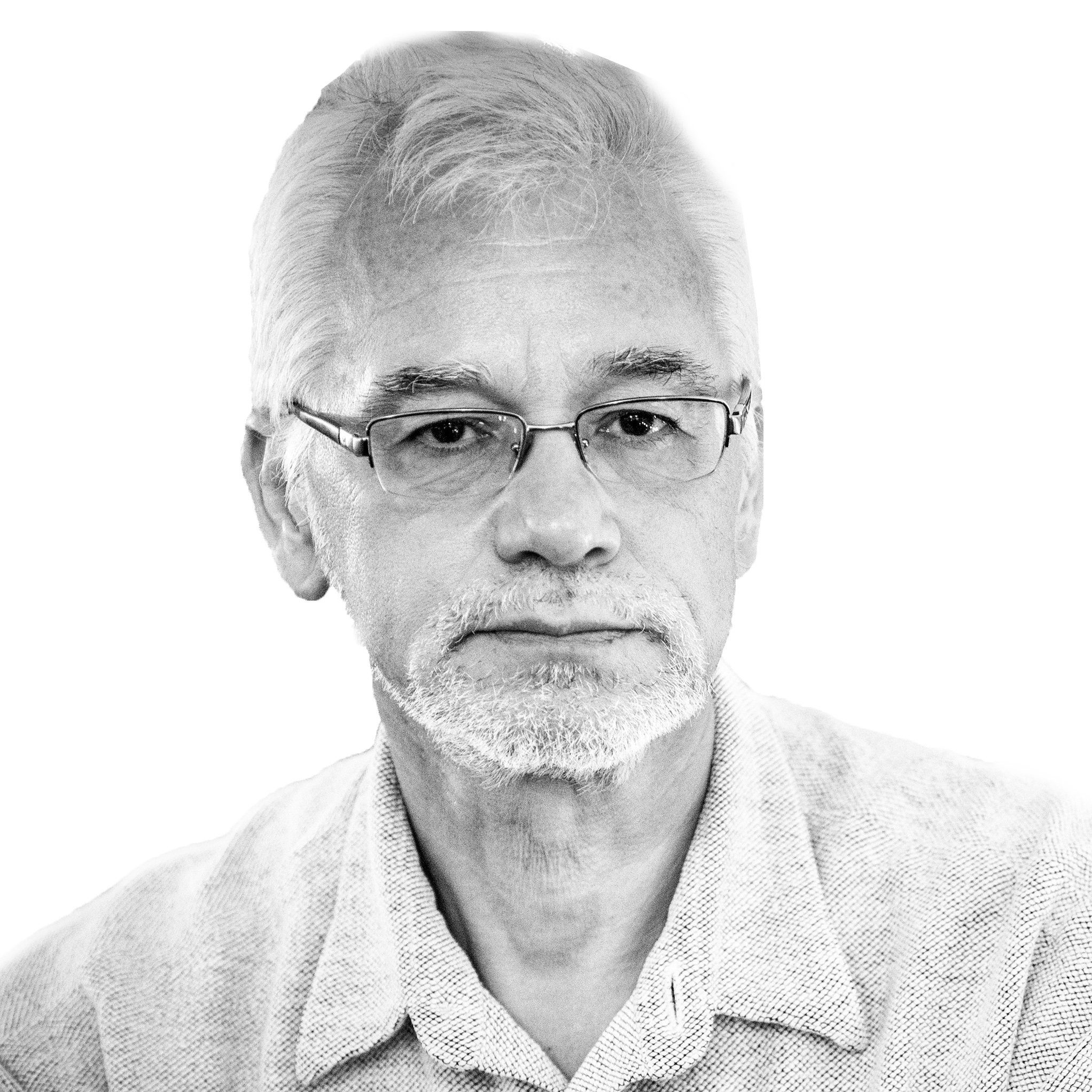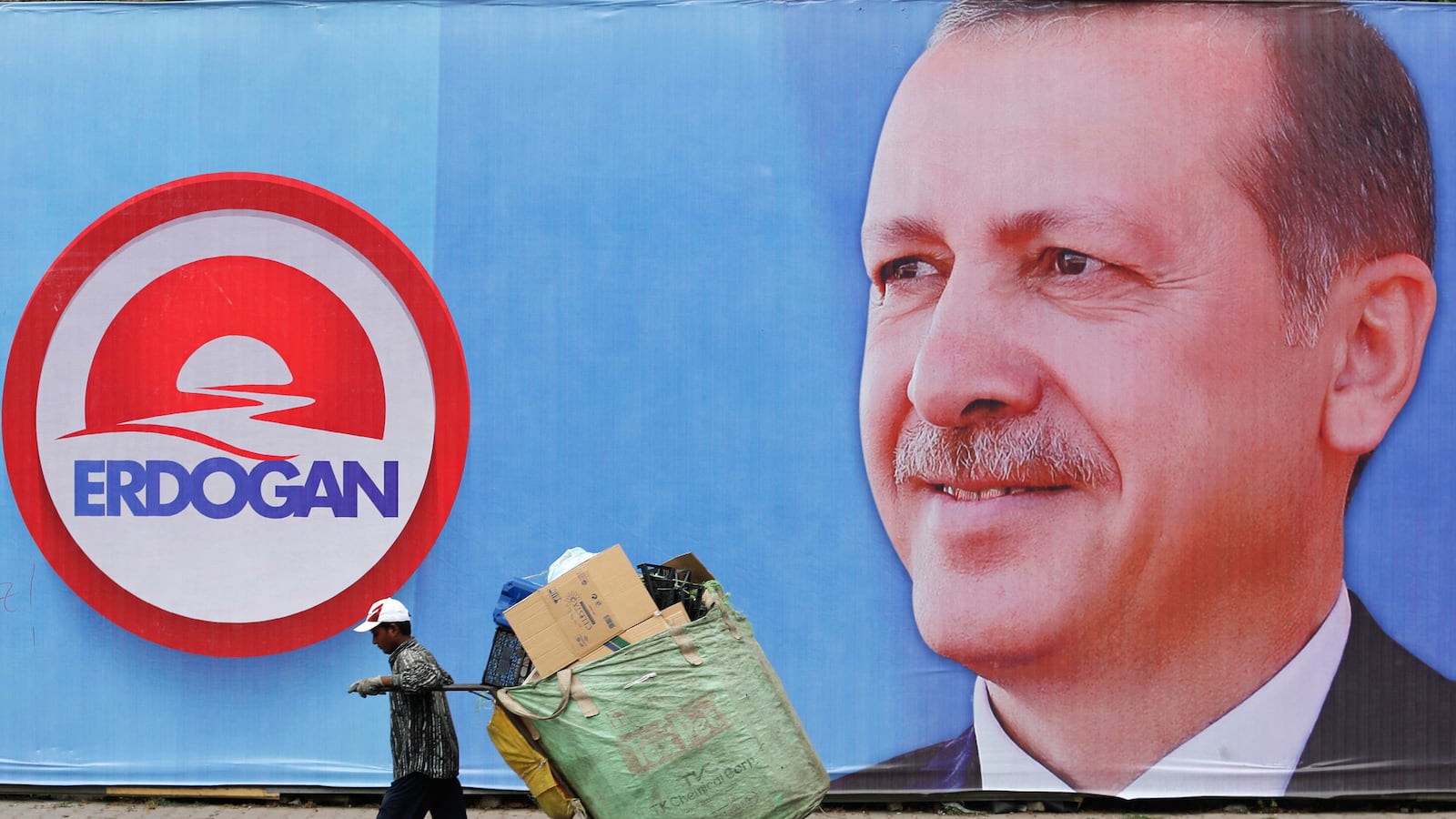ISTANBUL, Turkey — Recep Tayyip Erdogan has been promising Turkish voters he’ll be “a running, sweating president” if elected to that office on Sunday, and, no question, there’s going to be a lot of running and sweating to do.
Just the other side of Turkey’s frontiers, the self-declared “caliphate” of the self-proclaimed Islamic State has moved like some ancient horde of savage conquerors across much of Syria and Iraq. Hundreds of thousands of people have fled before the onslaught, and many inevitably will seek refuge in Turkey, a country that already has received an estimated 1 million people trying to escape earlier phases of the Syrian civil war.
But that’s only one of the dire foreign policy problems Erdogan will face, many of them exacerbated by his own miscalculations as prime minister over the last dozen years. He has established himself as the almost unassailable strongman of Turkish politics, whatever title he holds, but he has left his country increasingly isolated in the region and on bad terms with some of its traditional best friends, including and especially the United States.
Erdogan said in July that he is no longer talking directly to U.S. President Barack Obama because he is unhappy with the American stance on regional issues like Syria. Then, when Erdogan said Israel’s latest operation in the Gaza Strip had “surpassed what Hitler did,” the State Department called the remark “offensive and wrong.” That’s unusually blunt language between NATO allies.
“Both sides are dissatisfied with each other,” said Oytun Orhan, an analyst at the Center for Middle Eastern Strategic Studies, a think tank in Ankara. “Turkey thinks that the U.S. is meddling in its internal affairs, while the U.S. is criticizing Turkey’s stance on Syria and Israel and has the impression that Turkey is getting more authoritarian,” he told The Daily Beast.
Polls point to a clear win for Erdogan in the vote on Sunday, which marks the first time that Turks elect their president by direct ballot, rather than through parliament. Erdogan could rake in as much as 57 per cent of the vote, according to the opinion polls, with his rivals Ekmeleddin Ihsanoglu and Selahattin Demirtas trailing at around 35 to 40 per cent and 6 to 9 per cent respectively. If elected, Erdogan will take over from the current president Abdullah Gul at the end of the month.
When the Arab Spring began in 2011, Erdogan’s Turkey marketed itself as a model of a successful western-style democracy with a Muslim population. Riding on an economic boom that put money into the pockets of a growing Muslim-conservative middle class, the Erdogan government supported Sunni players in the region, particularly the Muslim Brotherhood, which briefly won power in Egypt, and Hamas, the Brotherhood spinoff that rules Gaza.
But over the last year and a half, the Brotherhood’s many enemies have waged a relentless and largely successful counterrevolution with the backing of Saudi Arabia and the United Arab Emirates, while the Brotherhood’s own failings weakened its support. A new strongman in Cairo, Gen. Abdel Fattah al Sisi, toppled the Brotherhood government there and Hamas, even before latest Gaza war, was in serious trouble.
Ankara, meanwhile, no longer has ambassadors in Syria, Israel and Egypt, while relations with the central Iraqi government in Baghdad, Riyadh and Abu Dhabi are, to say the least, strained. The joke in Ankara is that Erdogan, who promised a “zero problems” policy with all its neighbors, has ended up with “zero friends.”
“By avidly supporting the civilian and military wings of the Syrian opposition and the Muslim Brotherhood, Ankara became a party to the conflicts engulfing the Middle East,” Sinan Ulgen, a former Turkish diplomat and visiting scholar at Carnegie Europe, wrote in The National Interest. The Turkish leadership defended its position “by asserting it was on the ‘right side of history,’” but the results were “largely negative,” Ulgen wrote.
Analysts believe a President Erdogan would stick to his positions in Middle East matters, even if some of them make it hard to improve ties with neighbors. “When it comes to Israel, Iraq, Syria or Egypt, Turkey is far beyond the point of no return,” Serhat Erkmen, a political scientist at Ahi Evran University, told The Daily Beast.
As president, Erdogan is expected to tackle foreign policy issues with the same aides who have overseen Turkey’s approach so far. According to news reports, the current foreign minister, Ahmet Davutoglu, could become prime minister if Erdogan moves into the presidential palace, while intelligence chief Hakan Fidan, one of Erdogan’s closest advisers, may be made foreign minister.
One of the first issues Erdogan is likely to have to deal with as president is the threat posed by the Sunni jihadist group Islamic State, formerly known by the acronyms ISIS or ISIL, which has captured swathes of areas in Syria and Iraq and is moving towards the Turkish border. Almost 50 Turkish diplomats and civilians have been held hostage by IS in the Iraqi city of Mosul since June.
Ties with Israel can be expected to remain tense. Following the latest Israeli action in the Gaza Strip, Erdogan said a normalization of ties with the Jewish State, in crisis since the death of ten activists during an Israeli raid on a Turkish ship bound for Gaza in 2010, was out of the question. He signaled that talks aimed at finding way for a new start in relations would be put on hold.
In Egypt, Erdogan is refusing to cooperate with the administration of President al Sisi, whom he blames for the coup d’état against former President Mohammed Morsi, a close partner of Turkey. In Syria, Turkey has been accused of supporting jihadist groups fighting in the rebellion against Bashar al-Assad. Erdogan also is highly critical of Iraq’s Shia Prime Minister Nouri al-Maliki, accusing him of alienating Sunni Iraqis.
Despite the problems, Turkey, a NATO partner with a big economy and located at a geo-strategically critical juncture between East and West, is to remain a key U.S. ally in the region. “Both sides want to keep their strategic partnership in place,” analyst Orhan said. “The US remains indispensable for Turkey.”
Once the Turkish election campaign is over, Erdogan’s anti-American rhetoric could make way for a more conciliatory tone. Erkmen, the political scientist, said both Turkish and U.S. officials would keep consulting each other despite the tensions. “Even during the Cold War, politicians were able to talk to each other.”
Carnegie Europe scholar Ulgen advises the Turkish leadership to return to its former course of close relations with its western allies. “Power in the new world order is the power to establish effective partnerships and alliances,” he wrote. “It is time for Turkey’s leadership to rediscover this truth.”






